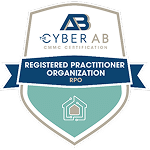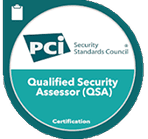Compliance is more than just avoiding penalties—it’s a powerful strategic asset that strengthens an organization. By proactively aligning with industry regulations, data protection laws, and cybersecurity standards, entrepreneurs safeguard their operations and build a resilient foundation for sustained growth and success.
In today’s regulated environment, compliance is more than just a concern for large enterprises; small and medium-sized businesses (SMBs) also face industry-specific regulations. For instance, the General Data Protection Regulation (GDPR) applies to companies handling data from EU residents, while the Payment Card Industry Data Security Standard (PCI DSS) governs those dealing with credit card transactions. The Health Insurance Portability and Accountability Act (HIPAA) is crucial for healthcare entrepreneurs.
By proactively managing compliance with these and other regulations, SMBs can effectively mitigate risks such as financial penalties, legal liabilities, reputational damage, and operational disruptions that can stifle business growth.
Let’s explore why entrepreneurs should prioritize compliance and how it supports the development of a resilient, successful business.
Compliance as a Foundation for Business Growth
Compliance plays a crucial role in building trust, a benefit often overlooked. Consumers and partners are more selective about whom they engage within a market, increasingly wary of data breaches, fraud, and unethical practices. Demonstrating a commitment to compliance shows that a company values data security and ethical practices, enhancing trust with customers and partners. Adhering to regulations and standards also showcases business transparency and reliability, which bolsters credibility among customers, investors, and partners. This sense of security, reinforced before, during, and after transactions, makes compliance a powerful tool for building trust in the marketplace.
Moreover, compliance is often required to secure partnerships and investments. Larger organizations and investors typically mandate compliance with specific standards, and failure to meet these can limit growth opportunities. For instance, a company that is not PCI DSS compliant may struggle to partner with major credit card companies, limiting its potential customer base.
The Cost of Non-Compliance
Non-compliance can have severe consequences, both financially and reputationally. Beyond the Penalties for failing to meet industry regulations, data protection laws, or tax requirements can quickly accumulate. For example, violations of the California Consumer Privacy Act (CCPA) or GDPR can result in hefty fines, even for small businesses.
Beyond the immediate financial penalties, which can be substantial, non-compliance can severely damage a company’s reputation. Studies indicate that up to 80% of consumers stop engaging with a company after a data breach, demonstrating how quickly trust can erode. This loss of trust translates to declining revenues and potential legal challenges, compounding the overall financial impact. The reputational damage from non-compliance can be long-lasting and difficult to repair, making it a significant risk for any company.
Operational disruptions are another consequence of non-compliance. Companies that fail to meet regulatory requirements risk being shut down until compliance is restored, halting productivity and affecting revenue. In severe cases, non-compliance can lead to business closure, devastating entrepreneurs and their teams.
Compliance Standards Worth Considering
Critical compliance standards protect sensitive data and help companies build trust. Here are four essential cybersecurity standards entrepreneurs should prioritize:
- General Data Protection Regulation (GDPR): the GDPR ensures transparency and individual data control for companies handling EU residents’ data. Non-compliance can lead to substantial fines and reputational damage.
- Payment Card Industry Data Security Standard (PCI DSS): This standard is required for companies handling credit card transactions. It mandates strict data storage and access controls to reduce financial fraud risks.
- Health Insurance Portability and Accountability Act (HIPAA): For healthcare entrepreneurs, HIPAA safeguards patient data through privacy, security, and breach notification rules, with significant fines for non-compliance.
- Federal Information Security Management Act (FISMA): For companies working with U.S. federal agencies, FISMA emphasizes stringent cybersecurity measures and risk management protocols to protect federal information systems.
Implementing Proactive Compliance
Adopting a proactive approach to compliance is not just about meeting regulations; it’s about empowering the business and its stakeholders. By incorporating compliance into your strategy, you can implement security controls effectively without disrupting operations. This proactive stance enhances your reputation, attracts customers, and instills a sense of control and confidence for stakeholders. It improves competitiveness through better risk management, increased data security, and robust customer trust.
With regulatory landscapes constantly evolving, staying ahead of compliance requirements is crucial. Early planning helps companies avoid penalties, mitigate risks, and build a culture of compliance that aligns with shifting industry standards, fostering long-term success.
Starting The Compliance Journey
Here’s a brief guide to help entrepreneurs begin their compliance journey:
Understand Relevant Compliance Requirements
Thoroughly research the regulations applicable to your industry, such as GDPR for data privacy or HIPAA for healthcare. This initial step is not just important; it’s essential. It helps you allocate the right resources and informs your overall strategy. Specifically, understand these regulations’ specific obligations, including data handling practices, breach notification requirements, and consumer rights. This level of understanding will make you feel informed and prepared for the compliance journey ahead.
Consider leveraging resources like industry associations or legal consultants specializing in compliance to enhance your understanding. This approach will ensure you’re interpreting regulations accurately. Additionally, create a compliance checklist tailored to your company’s needs, serving as a roadmap as you progress through your compliance journey.
Engage with Compliance Experts
Third-party compliance assessors provide comprehensive insights into an organization’s compliance posture. Regular audits by experienced assessors help identify gaps in current best practice posture and ensure proper compliance with the latest regulations. Their expertise supports and guides entrepreneurs, making implementing necessary changes easier and maintaining compliance over time.
Establishing a working relationship with compliance experts allows entrepreneurs to navigate complex regulatory obligations properly, making it easier to implement necessary changes and maintain compliance over time.
Document and Monitor Compliance Efforts
Finally, maintaining thorough records of all compliance activities is essential for accountability and transparency. To achieve this, create a centralized compliance management system to store all documentation, including policies, training materials, and audit results. Moreover, use monitoring tools and software to track your compliance status in real time, which can alert you to potential issues before they escalate. This proactive approach minimizes non-compliance risk and prepares companies for unforeseen audits.
Regularly review and update your compliance documentation to reflect any changes in regulations or internal processes, ensuring that your compliance efforts always align with current requirements. Additionally, consider implementing a feedback loop that allows your team to provide input on compliance processes, fostering a culture of continuous improvement.








